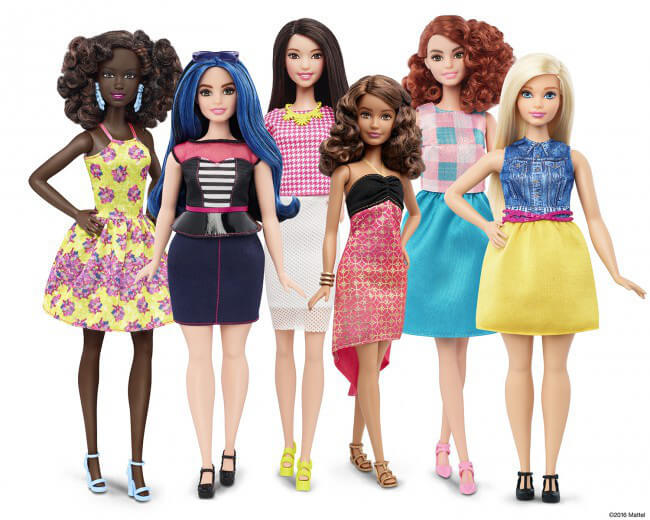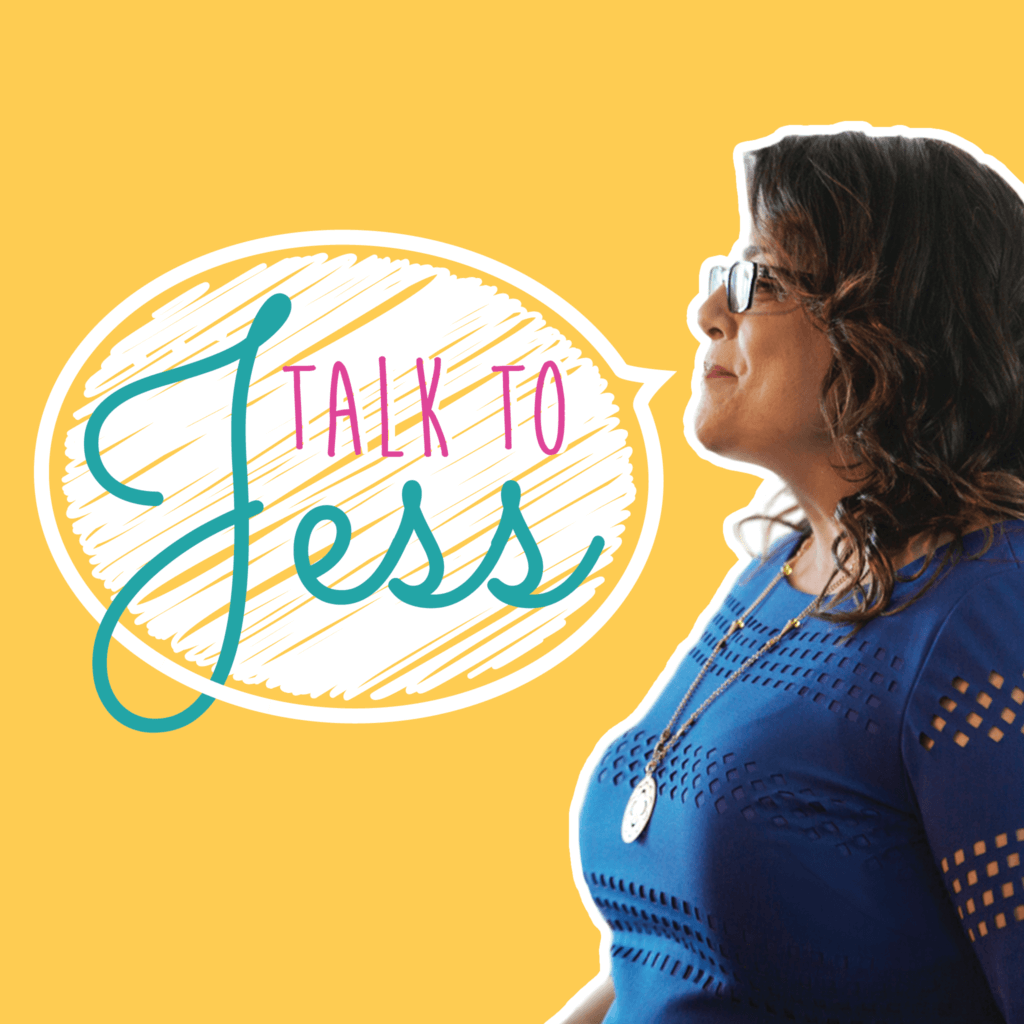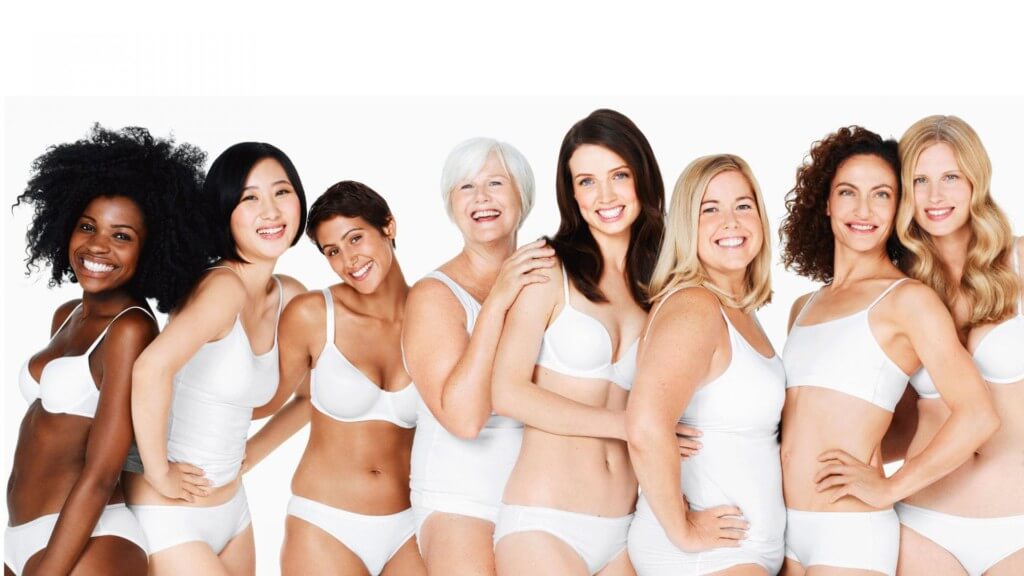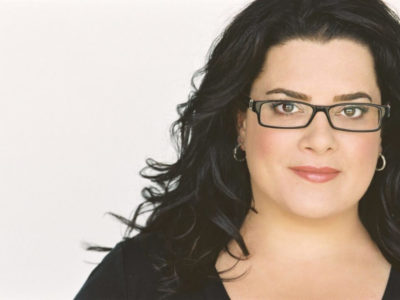Jess Weiner can’t stop bullets with her wrists (or maybe she can), but this modern-day Wonder Woman can shape Barbie dolls with her creative mind to save the self-esteem of girls around the world. 60 percent of girls are so concerned with their appearance that they refuse to go swimming, visit the doctors and go to school. 11 percent of girls in the world consider themselves beautiful. Jess Weiner works daily to shrink the former and increase the latter. She brought you the new Barbie, the one that actually looks like a normal person. Together with Dove, she reached 20 million girls with the Real Beauty campaign. In three years, she plans to reach 40 million. She fights for the girls who need someone to fight for them, and even the ones who don’t.
Q&A WITH POWERFUL WOMEN LEADER JESS WEINER
Q: I’d love to hear about what inspired you to start your journey working on women empowerment?
A: I think I’ve always been interested in what makes women and girls in particular feel more confident or more powerful, right? And I came to that curiosity as a girl myself. Obviously I had, just like everybody else, the requisite insecurities that you have growing up and I never felt like I really was as beautiful as I needed to be or I looked like what was out there in culture, and so I think I got curious at some point about how we change those feelings. Not just for myself, but for other women around me, and so my curiosity about it was sparked when I was pretty young and then I figured out how to make a career doing it.
Q: How do you define your mission, vision and values?
A: My vision is to create a world in which all of us are seen. We’re seen in our everyday lives. We’re seen in the media we consume. We’re seen in our work places, and by being seen I mean being recognized, honored and included for who we are. So my vision is pretty big. My values that help me to get there are that I very, very much value authentic, real connection with people. I very much value challenging status quo. I’m constantly asking questions about why things are the way they are and why there are systems in place.
I also really value hard work. I think I’ve recognized that over time these bigger social issues are not going to solve themselves and they don’t get solved overnight. A lot of this is about how hard we’re going to work to really understand each other and the systems that play, and that brings me to my mission. My mission every day is to do work towards that vision of helping people be seen. Either it is how I consult with the businesses that I work with, so I’m oftentimes bringing them ideas or insights or information about their audiences that they might not be thinking about. Or it might be some of the talks I give at colleges or that I give out in public spaces around helping to be more media literate and helping to build confidence and embrace self-discovery. Everything I do in my mission every day is about helping people feel and be seen in the world.
Q: What initial steps did you take to start working toward your mission?
A: I think first before you have your mission, values and vision, you have to sit down and figure that out and listen to your life a little bit. Listen to what you care about. Listen to what you oftentimes think about. A lot of young people that I work with will say, “I have all of these passions, but I don’t know where to begin.” Well, just begin. Sit down with that pen or paper, if you like it like that, or on your laptop or your iPad and start to just jot down streams of consciousness, “What am I most passionate about? What do is spend most of my time thinking about? What do I think I can do to contribute to that?” And then you start.
Q: How did your mission develop over time into what it is now?
A: My mission evolves when I evolve, which is constantly. We’re always changing as people. So I think my mission changes based on what my objectives are. Right now, I’ve got this really big goal to help with better representation in the media and help with better representation in work places, and so that really helps drive my mission. But it wasn’t always like that. Sometimes my mission was to write a book. Sometimes my mission was to be a really good public speaker. It really is kind of goal-driven, but it always, for me, has to get married to the vision, the big vision of what I want to accomplish. For me, mission is about action. It’s what I do every day, and that’s really driven from what I see in my mind is what I want to accomplish.
Q: What are some challenges you face integrating your values (i.e. women’s empowerment) into your career?
A: I work in Hollywood. It’s a tough industry to work in because there’s still a lot of racism and sexism. The dollar rules everything here, so sometimes there are things that are allowed to happen just because they make money, but they’re not necessarily helping move the culture in a good direction. So sometimes that really compromises my values because I value that authentic connection or I value challenging status quo, and sometimes, as an example, people in Hollywood don’t want to challenge status quo, you know? They want to keep it going ‘cause it makes money.
I think it’s also hard when you get inside an industry, you realize that there’s a lot of belief systems in these industries that make the products that come out of them, and so you’re really trying to change people’s minds overall, and that’s not easy to do. If somebody reading this can just think about changing somebody’s mind in your family, or changing a stranger’s mind, it’s hard enough to [get them to] think differently. Let alone, you’re trying to change a bunch of people who get paid to think a certain way, and you’re asking them to think differently. It’s always a challenge. I mean most days, I like that challenge, and then there’s lots of days that I don’t, and I wish I was doing something else, but I haven’t given up yet, and I don’t plan on it
Q: As a personal branding professor at USC, what is the most important lesson you teach your students?
A: It’s to listen to themselves, hands down. So many of my students are really good students. They do what they’re told to do. They take the classes they’re supposed to take. They go to the schools they’re supposed to go to, and they go into the careers they think they really want. Then what happens when I get students in my class is when I really ask them to listen to what makes them passionate, what makes them light up in the world. Sometimes they have to face the fact that they might be studying or majoring in something that they don’t want to do, that they’re doing because their parents want them to or they think they’re supposed to be doing it.
So when they start to listen to their own life talk to them, they realize things about themselves that can really challenge their perception. So I think that’s the most important thing ‘cause it’s not about the book. There’s nothing that anybody’s written in a book that can teach you about yourself. You have to be willing to really look within, and that’s really what the personal branding class is about. It’s about finding out what your individual vision, values and mission are, and sometimes recognizing that that might not be what they were yesterday.
Q: Do you feel like personal branding is especially important for college women? If so, why?
A: Well I think it’s important for all college students: Men and women and other identified genders because I feel like it is about reputation building. It’s about becoming the person you want to be in the world and how that’s going to lead you into your work and into your life because when you graduate and you go for job interviews, or while you’re in school and you try to get internships, employers always want to know what makes you different, what makes you special, why should I hire you, why should I work with you. Sometimes even the smartest of my students don’t know how to answer those questions.
Q: What were some of the difficulties you overcame while you worked to change Barbie’s body?
A: Well Barbie as a brand is a very old brand. It’s been around 57 years. So there’s a lot of people who have opinions about Barbie. So it’s not like it’s a new brand where you can help form people’s opinions. I think the biggest challenge I had was public perception…Then I think the other part of it is Barbie is not a non-profit. It’s not a charity. It’s a business, and your focus in business is always to make money. So an opportunity and a challenge was to try to make sure we were improving the brand but also could prove the results in sales. You can make a change in a product, but you need people to show up and buy it in order for it to be successful. Luckily for us, it has been, but it’s been, any time you’re gonna go and change something that’s been out in the market for a long time, that’s always a big challenge.

Q: Changing Barbie’s shape was a huge step in terms of body positivity. What other similar avenues do you think would be worth pursuing?
A: I think there’s a lot more work for us to do in broadening the kind of stories that we tell about all people but especially women. I’d love to see more work done in the tech industry. I know that that’s an industry that still really suffers from lack of representation in their workforce of both women and minorities. I also feel like we’re not done yet in toys. I think there’s a lot of work that can be done in helping to change the dolls and toys that kids play with every day.
Q: You have a lot of big-name clients that you’ve worked with through Talk to Jess. I noticed some of them were political. Would you ever consider going into politics?
A: Well I have never really talked about this in print, so I’m gonna give you a scoop. I definitely am considering running for office. I’m trying to decide at what level I’d like to enter into whether it’s more local politics here in Los Angeles or whether I wanna pursue a national position. I’m very, very interested. That’s actually a great example of an area that needs tremendous help is women in public office, and so I’m very interested in bringing my voice to that. I don’t know exactly when. I think, you know, kind of soon. I’m busy with my current day job, but I definitely am considering a run for office.
Q: At College Magazine we’re working together with EMILY’s List, Emerge America, Human Rights Campaign, Higher Heights, Running Start, She Should Run, Victory Fund and IGNITE on an initiative to fight for equal representation in congress called “50 by 2050.” What are your thoughts on the goal of achieving 50 percent of women in Congress by 2050?
A: I mean I think we have to do it for the betterment of our democracy and for representation of all the people in our country and around the world. We need to. We are so far behind other nations as far as female representation in government, including obviously the fact that we’ve never had a female president, right? Yet. Yet. Yet. I think that it’s incredibly important to set this goal.
I also think the organizations you listed, and one of them in particular, I love IGNITE, and I’m also in the national board for She Should Run, and I really understand the value of these organizations. An organization like She Should Run as a partner is very valuable because they’re gonna help bring the framework to women everywhere who are considering running for office. We have to continue to build that pipeline of help and support. It’s an amazing thing to have that goal, and I think it’s attainable. I hope we achieve it earlier than that, but I think it’s also important to remember we have to know how we’re gonna get there. What are the steps that we’re gonna take to get there? And organizations like the ones that you mentioned really help us to do that.
Q: What are some of your favorite projects from Talk to Jess?

A: It’s sort of like asking a parent to pick their favorite child. I love everything that we work on, but I will tell you that something that I’m interested in doing that’s a new project is I’m getting ready to write my third book. It’s gonna be about confidence and self-discovery, and how to help you be the best version of who you are because I think that’s the message that really resonates with us. I wanna fill it with some of the stories of how I’ve been learning that about myself.
So whenever I get ready to write a book, I always go in to these very deep states of contemplation around how will these words help somebody else and what can they do to bring more power and empowerment to the forefront. I get very excited about a project like that because I’m ready, after helping all these business and watching their success in changing representation, I’m ready to kind of bring my voice back out in both books and lectures and seminars to kind of help get this army of amazing, young women ready to figure out who they are more and bring that into whatever they do, whether that’s work or motherhood or community service. I wanna help inspire that next group.
Q: I read that you went around the world and taught workshops on self-esteem on behalf of the Dove Real Beauty campaign. Where did you go? Where did you have the most trouble getting across to young women?
A: I’ve been everywhere from Europe to Australia and Canada, and I think that it wasn’t necessarily that I had trouble reaching young women. I will say that in markets like Brazil or in places where there’s a lot of emphasis on physical beauty, it can be very hard. We have to remember that the conversation around challenging beauty stereotypes is a predominantly very Western conversation, and so it was more that in some markets I had to be reminded that not everybody is having these same conversations. When you grow up in a culture that values physical beauty, coming in to talk about challenging that can be very uncomfortable for people. That’s been a challenge I’ve experienced.

Q: What were your biggest challenges while organizing this campaign and how did you overcome them?
A: What I love about it is it’s in real life. It’s not a curriculum online. We get to spend an hour with girls all over the world, ages eight to 18. We get to talk about things like social media and beauty stereotypes and bullying and creative expression, things that I think are really important for our own wellbeing and growth. I love that Dove as a brand is so committed to that. I don’t know that people know this, but Dove is the largest distributor of self-esteem curriculum in the world. In the last 10 years, we’ve reached 20 million girls with our self-esteem programming in person. By year 2020, we’re going to reach 40 million girls, and that’s a tremendous, tremendous experience. So I feel very, very lucky to be apart of that.
Q: What’s the one bit of advice you would give to college women out there?
A: I think I would say to the freshmen young women coming in to school, explore, explore, explore. Take lots of different classes when you can. Meet different people. I think what’s so beautiful about the college experience for women is it really gives you an opportunity to try on lots of different ways to be in the world and lots of different causes to be passionate about. I think it happens for all women, for all people, but I would say as a freshman, I’d say explore and get curious, and don’t get boxed in.
Then I would talk to my college women, who are looking ahead to the future now, who might be closer to graduation, and I wanna say two things. I want to say number one, be humble about what you know and what’s still left to learn because in that humility, you can listen more to people and have more experiences to gain mentorship and to gain really valuable first work experience. Don’t try to feel like you’ve gotta be an expert right as you get out of college. Give yourself the time and the humility to learn and to be okay with that. The second part is to say you are enough. Who you are right now, what you’ve experienced, it’s enough. I want them to stop comparing themselves to other benchmarks of where they think they’re going to be. Hopefully, God-willing, you have a long life, you’ve got a long career ahead of you. You’re going to make mistakes, but know that who you are right now is enough.
Q: What are your goals moving forward? What do you hope to accomplish in the next five years?
A: Well, I never make goals for five years, if you can believe that. I always make short-term goals from a year to a year and a half because so much changes, right? So the next year and a half, my goals are three things. Number one is I wanna write this book. I’m going to write this book and put it out to the market. [Second,] I’d like to develop some sort of TV or digital program that I can bring my message out to people with. The third is, I want to keep growing as a person. I want to keep challenging myself to be more creative, more connected, more curious in the world.
Q: What are some steps college women can take if they want to build a strong personal brand?
A: I think you have to know what your vision, values and mission are. I think that’s number one. I think mentorship is really important. That’s number two. Your brand is only as good as the people you surround yourself with. So make sure that you’re surrounding yourself with people that are good reflections of you, but also mentors that can help you elevate to the next level. I think number three, personal brands, any kind of brands, are promises delivered over time consistently. If you think about Nike or you think about Apple, who are best in class in their categories, it’s because they deliver on their message time after time after time. So as a person and as a personal brand, you have to use the same thing, that’s your reputation. Are you a person of your word? Do you show up when you say you’re gonna show up? Do you do what you say you’re gonna do? That’s how you build your brand.
Q: Is there anything else you’d like to add?
A: I want to make maybe an invitation to your readers if they read this and they feel inspired to me or they want to get connected to me or to my work, I would love for them to join our community because what we’re trying to build is a community of people who share same values and who wanna learn more about themselves so that they can go out and really impact the world. So I just wanna invite people to come and connect with me on social or on the website and join our community.
How to Connect with Jess Weiner
Like and follow her on Facebook and follow her on Twitter
Check out her website



















